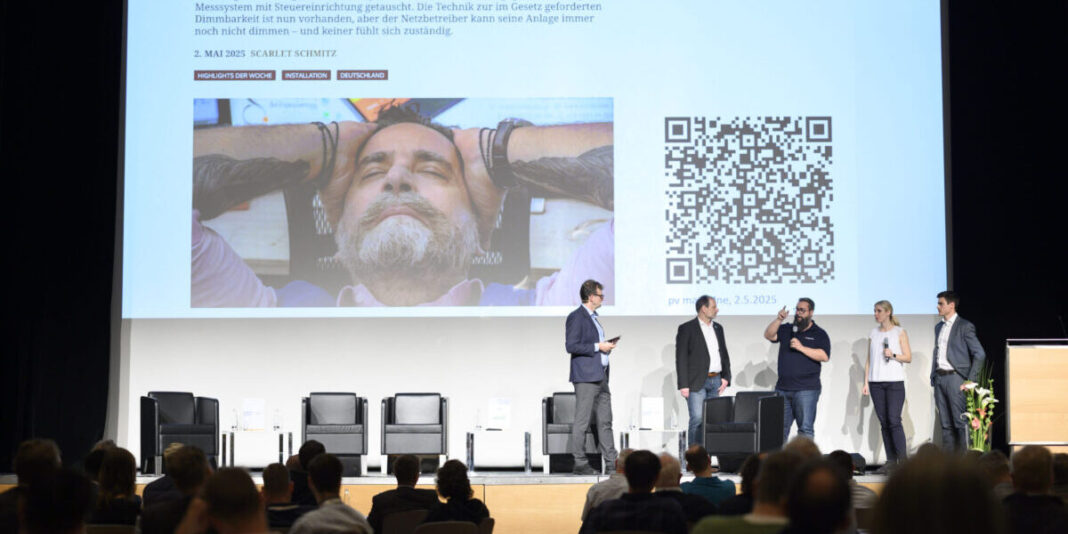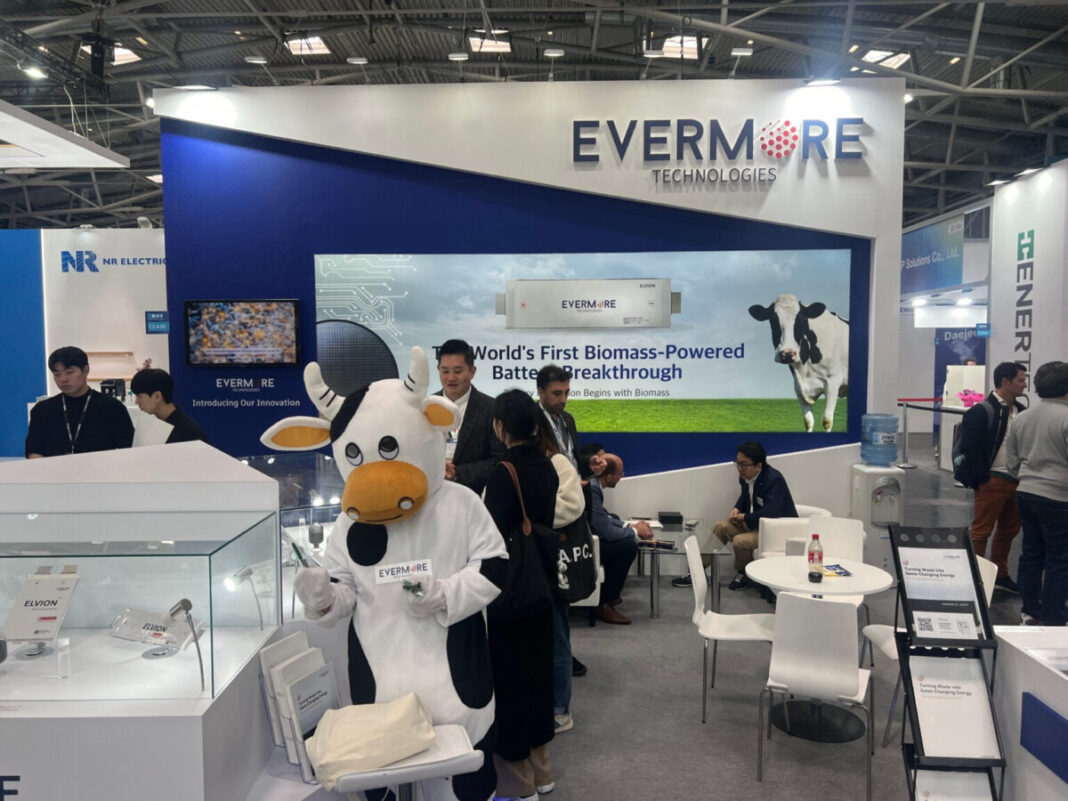Installers, manufacturers, scientists and users at the Smarter E Europe event – held last week in Munich, Germany – discussed PV home storage, energy management systems (EMS), and key challenges in the implementation of Germany’s new solar provisions.
Marian Willuhn
From pv magazine Germany
pv magazine hosted this year’s Focus event during The smarter E Europe 2025 trade show in Munich, Germany. More than 400 attendees from the installation sector, manufacturing, academia, and end users spent two hours discussing current developments to optimize residential solar power use.
The discussion focused on home energy management systems (HEMS), battery storage, and new regulatory requirements – from Section 14a of the Energy Industry Act (EnWG) to the voluntary shift to zero feed-in for existing systems during negative electricity prices, extension of the funding period, and direct marketing models for small systems. Speakers also examined forecast-based charging, heat pump control, and cybersecurity in depth.
To kick things off, Thomas Haupt, a research associate at Ansbach University of Applied Sciences, presented a new market overview and a selection tool, the HEMS Finder, to help navigate the home energy management system market. The tool aims to clarify the differences between systems, such as self-consumption optimization, interfaces to heat pumps, and controllability via weather forecasts. A dozen manufacturers attended and answered questions from moderator Michael Fuhs and the audience: Who can do what?
Another focus was the new Section 14a of the EnWG. Frank Borchardt, senior project manager at VDE FNN, outlined the installation requirements that installers must consider. Uncertainty arose during the meter cabinet conversion. To address this, VDE FNN created a guideline to clarify where and how much space to leave for control boxes and other components. It became clear that the need for practical information and clear recommendations remains high.
Smart heat pumps
Markus Große Gorgemann from Energielenker and Marc France from Viessmann Climate Solutions discussed integrating heat pumps into energy management. Both emphasized the potential of intelligent controls to increase self-consumption and extend device lifespans. They highlighted the EEBus interface, which enables more than simple on/off switching, such as flexible power modulation – a feature that only a few HEMS providers are developing for selected heat pump manufacturers.
The economic perspective was also addressed. Cornelia Lichner, editor at pv magazine, reviewed changes brought by the Solar Peak Act and evaluated whether operators of existing systems should switch to zero feed-in when electricity prices are negative and extend their subsidy periods. In short: yes, it can be worthwhile, but operators should consider the feed-in tariff level, battery storage system size, and other system parameters before switching. Johannes Weniger, a scientist at HTW Berlin, presented findings on electricity storage, focusing on the benefits of forecast-based charging. This method takes weather forecasts and typical consumption profiles into account, shifting charging to midday to avoid peak times and protect the battery.
In the following discussion, Christian Chudoba (Lumenaza) and Felix Dembski (Sonnen) demonstrated possibilities for direct marketing of small-scale systems. While the process remains bureaucratic and technically challenging, new models like the simplified flat-rate model from the Federal Network Agency promise to simplify things. This model allows storage systems to charge from the grid without losing EEG compensation for green electricity and works without complex metering models, relying on cooperative grid operators.
The final discussion focused on IT security. Sonna Barry from security service provider Secida, Frank Borchardt, and Marian Willuhn from pv magazine discussed current cybersecurity risks and requirements for inverters and energy management systems. As remote control via cloud solutions and the internet increases, the need for robust security concepts grows, particularly concerning potential attack surfaces in decentralized energy systems.
The event highlighted strong interest in the home storage, energy management, and regulatory framework markets. The exchange between practitioners, researchers, and industry professionals remains crucial.

This content is protected by copyright and may not be reused. If you want to cooperate with us and would like to reuse some of our content, please contact: editors@pv-magazine.com.
Popular content








